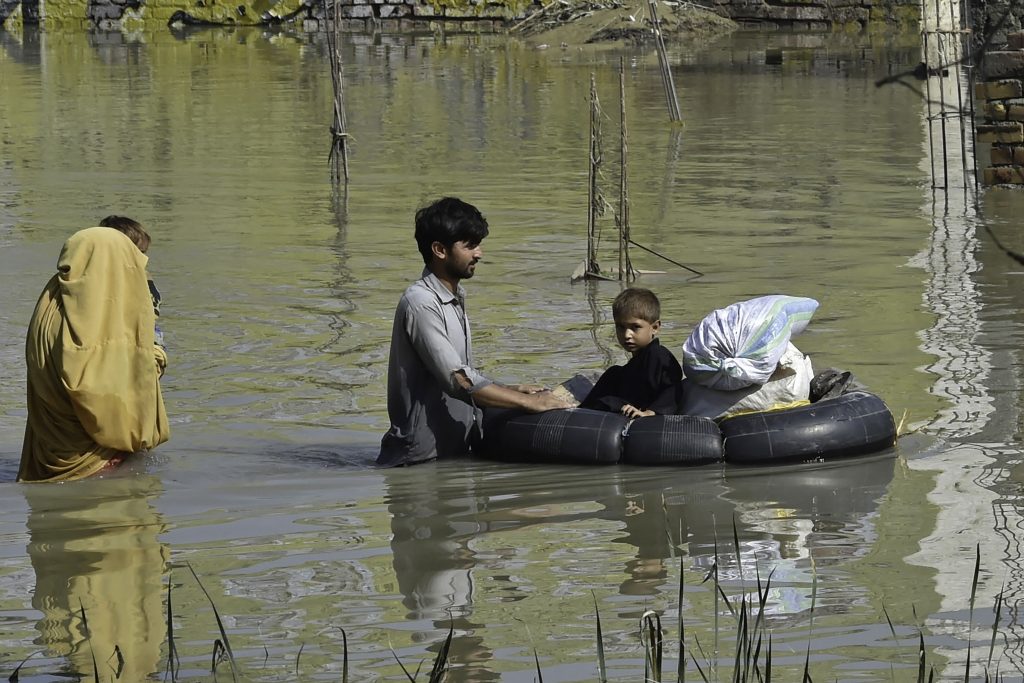Pakistan pleads for international help as parts of country ‘resemble a small ocean’

Climate change minister Sherry Rehman said Sunday the unprecedented rain had created a “climate catastrophe” with floodwaters submerging homes, destroying farmland and displacing millions of people.”We’ve had to deploy the navy for the first time to operate in Indo-Pakistan, because much of it resembles a small ocean,” she told German broadcaster Deutsche Welle.On Monday, the death toll reached 1,061 since mid-June, according to the National Disaster Management Agency (NDMA), as the unrelenting rain raised fears of more fatalities to come. “By the time this is over, we could well have one quarter or one third of Pakistan under water,” Rehman told Turkish news outlet TRT World on Thursday.On Monday, new satellite images from Maxar Technologies showed the scale of the disaster — homes and fields completely submerged along the Indus River, as well as the cities of Rajanpur and Rojhan in Punjab, Pakistan’s most populous province. Video released by the Pakistan Army showed troops staging treacherous rescues by helicopter of people stranded in floodwaters — including one boy trapped on rocks in the middle of a raging river in the northwestern Khyber Pakhtunkhwa province.Rapid flash floods have destroyed more than 3,000 kilometers (1,864 miles) of road, 130 bridges and 495,000 homes have been damaged, according to NDMA’s latest situation report, making access to flooded areas even more difficult.Foreign Minister Bilawal Butto-Zardari said Sunday this year’s monsoon season had been “absolutely devastating.””I haven’t seen any destruction or devastation of this scale,” said Butto-Zardari. “I find it very difficult to put into words the phraseologies that we are used to, whether it’s monsoon rains or flooding, doesn’t quite seem to encapsulate the ongoing devastation and disaster that we are still witnessing.”‘Monster monsoon of the decade’Pakistan is already battling through its eighth cycle of monsoon rains, Rehman said Thursday, an anomaly in a country that typically sees three or four such rainy periods per year.”Pakistan is living through one of the most serious climate catastrophes of the world,” Rehman said in a video statement.”We are at this point ground zero of the front line of extreme weather events, which we have seen from early this year from an unrelenting cascade of heat waves, forest fires, flash floods, multiple glacier lake outburst events and now the monster monsoon of the decade.”In his comments Sunday, Butto-Zardari said Pakistan was bearing the brunt of climate change as other countries with bigger carbon footprints do little to reduce their emissions.”Pakistan contributes negligible amounts to the overall carbon footprint, but we are devastated by climate disasters such as these time and time again, and we have to adapt within our limited resources,” he said.







